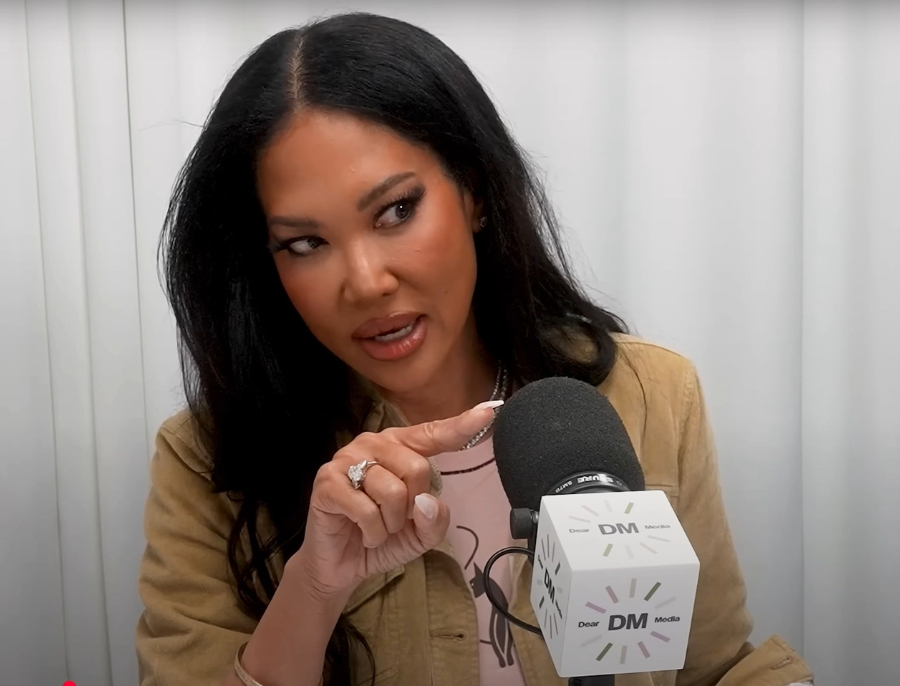The 5 Questions That Will Fix Your Relationship With Money

There’s a particular kind of anxiety that hits when you’re standing in line at a coffee shop, contemplating the $5.50 oat milk latte, while your brain runs a panicked calculation: Can I afford this? Should I be buying this? What does this say about my financial responsibility as a person?
Jesse Mecham, founder of the budgeting app You Need a Budget (YNAB), wants to kill that internal monologue forever. His solution? Give every dollar a job. Not by telling you to stop buying lattes—he’s actually not interested in policing your spending at all—but by fundamentally changing how you think about money in the first place.
“The practice itself of giving every dollar a job and examining your spending reveals more of you to you,” Mecham explains on a episode of Dream Bigger. “You will be getting the best thing—clarity. Then, the question becomes, what will you do with it?”
Mecham started YNAB in 2004 with just a simple spreadsheet, back when he was a cash-strapped newlywed trying to make rent. Twenty-one years later, his “give every dollar a job” budgeting philosophy has evolved into a full-fledged financial movement, complete with a user-friendly app (yes, there are cute emojis) and a devoted following of people who swear by his central tenet: you can’t out-earn a spending problem.
Why ‘give every dollar a job’ works
The concept is deceptively simple: assign a purpose to every dollar that comes into your account before you spend it. Rent money, grocery money, vacation fund, emergency savings—each dollar gets a specific role. But Mecham insists this isn’t about restriction; it’s about intention.
Money, says Mecham, “is its next use,” describing his non-judgmental approach to spending. “It’s whatever it’s going to be used for next. There’s no judgment attached to it.”
He encourages people to see money as a finite resource and, most importantly, that earning more of it is not the answer to wealth. The problem is when the money you bring in and your spending habits are misaligned, and something needs to change.
However, your priorities are subjective, so he’s opposed to telling people how to spend their money or defining what is a “waste of money.” Want to spend $200 a month on expensive coffee? Great—just make sure you’ve allocated money for that alongside your rent and savings goals.
“Giving every dollar a job eliminates second guessing,” Mecham explains. “You enjoy the thing instead of allowing the spending to taint the thing.”
5 questions to ask yourself when managing money
Rather than prescribing a one-size-fits-all budget template, Mecham suggests working through five questions that help you develop what he calls a “money mindset.” The beauty is in their simplicity—and the fact that you revisit them whenever your financial situation changes.
- Reality check: When you have saved a few thousand dollars in your bank account, what does this money need to do before your next paycheck? This question forces you to confront the gap between your income and your actual expenses, rooting your spending decisions in practical constraints rather than wishful thinking.
- Stability planning: What large or less frequent expenses do you need to prepare for? This question is about balancing present-day desires with future realities. You can’t predict when your car will break down, but you can acknowledge that it probably will at some point and save accordingly.
- Resilience building: How much could you set aside for next month? The goal here isn’t to live like a monk, but to create breathing room between you and financial emergency. Living paycheck to paycheck isn’t just stressful—it’s also a form of decision-making that keeps you reactive rather than proactive.
- Creation focused: What goals should you prioritize? This is where the magic happens—when you move beyond just covering basics to actively building the life you want. Maybe it’s a house down payment, maybe it’s a sabbatical fund, maybe it’s having enough money to quit a job you hate.
- Force assessment: What changes, if any, do you need to make? Sometimes your priorities shift, and your budget should shift with them. Flexibility, according to Mecham, is part of good budgeting, not a sign of failure.
Making peace with money
We all know the feeling of working with a tight income. Your life might feel like it’s on hold or that your dreams are out of reach, and the bills pile up as you wait for more money to arrive. Mecham’s solution isn’t to make more money or spend less money—it’s to stop living in financial limbo.
In a culture obsessed with side hustles and income optimization, this perspective is particularly relevant for anyone who has ever thought their problems would disappear if they just had more money. But Mecham, who has seen high earners struggle with money, knows that income level and financial stability aren’t the same thing. His approach is to help you stop feeling crazy about the money you already have.
“It’s about no second guessing,” Mecham says. “It’s about budgeting your money so you can spend it without guilt or shame. Giving every dollar a job is about clarity about what you want and clarity about what you don’t want.”
Read More:
- What Are the Five Types of Wealth?
- 11 Money Moves To Level Up Your Finances This Year
- Before the Kardashians: How Yris Palmer Built Her Lash Empire with $500




















Leave a Reply